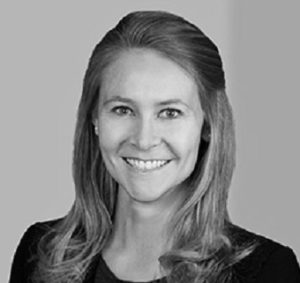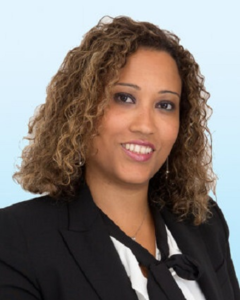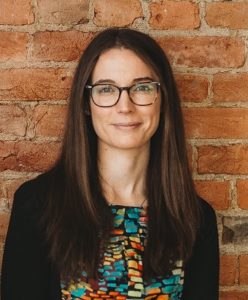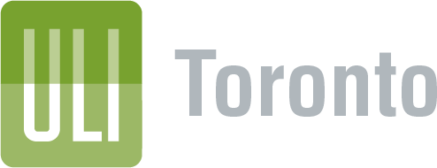Perspectives on Mentorship from the ULI Toronto Mentorship Committee – Shwaan Hutton
June 28, 2022
 Shwaan Hutton, Director, Development, Graywood Developments and Mentorship Committee Co-chair
Shwaan Hutton, Director, Development, Graywood Developments and Mentorship Committee Co-chair
Whatever it is that you do for a living, if you do it well, I’m sure you had someone in your corner cheering you on and guiding you along the way – a mentor.
The ULI Toronto Mentorship Committee has grown our program to over 120 city-building participants, where we pair seasoned industry vets with those 2-5 years into their career, for a year-long commitment of monthly check-ins combined with targeted professional development programming hosted by ULI. The main goals of the program are to:
- Build intentional, meaningful relationships
- Assist with career development
- Strengthen the industry through mentorship and reverse mentorship
- Positively impact workplace discourse
- Act as a ULI gateway experience
Although city-building from the outside may seem like a ‘land’ or a ‘buildings’ business, it is just as much a people business.
Every year our committee hears success stories from the relationships formed and the positive influence these connections have made in career growth. Although city-building from the outside may seem like a ‘land’ or a ‘buildings’ business, it is just as much a people business.
I found my way to this program seeking an outlet for professional development discussion with those outside of my office. Although I’ve always had incredible workplace mentors who have championed me, and female career advancement, I was looking for someone to confide in at an arm’s length from my workplace but who still understood the nuances of the industry and 5 years ago this program gave me just that. My mentor listened, took me on tours of his developments, shared his struggles and successes, gave me candid advice (which were sometimes hard truths), helped me prepare for difficult discussions and is now a trusted friend I could pick up the phone to call any day. I was so grateful for this connection and the positive impact our monthly check-ins had on my trajectory, that the following year I chose to volunteer my time to co-chair the committee in hopes of facilitating a similarly fulfilling experience for others.
Whether through a formal program like this, or facilitated independently, I encourage people in all stages of their career to take at least 12 hours out of their year to work on building a deliberate “mentorship” relationship with someone in their industry, outside of their office. Despite logic, we often hear it is actually our mentors who get the most out of the program, gaining honest insights from a younger generation which makes them better, more informed leaders.
Behind the scenes of the ULI Toronto Mentorship program is a dedicated group of professionals who volunteer time from their busy day jobs/lives to facilitate this important program, and come to this committee with their own unique stories.
Below is some background and wise words of advice from each of them:
 Christopher Markovic, CEO, PMA Brethour Realty Group and Mentorship Committee Co-chair
Christopher Markovic, CEO, PMA Brethour Realty Group and Mentorship Committee Co-chair
Your story of where you benefited from reverse mentorship: We are hearing more and more about the mentor–mentee relationship across all industries. A meaningful reverse mentoring relationship or even a one-time, on-the-spot exchange can be game-changing for both parties just as long as it is thoughtful, intentional and in an already established trusted relationship. At my firm, we often see reverse mentoring in action when standing up a new imitative in technology or the digital transformation of PMA Brethour. It often happens naturally and is what you imagine it to be – very successful in creating ease with new tech in older generations, but it is also almost ‘transactional training’.
One example I can think of where I saw a magical outcome and experience for both parties was recently where I witnessed a very senior-level employee on my team being coached around the use of pro-nouns to describe gender association and identity. Here both employees had the ease to ask questions and have a simple direct conversation on what the senior person thought was an uncomfortable topic but was in a safe nurturing space and relationship for both employees. This is one example of how diversity in perspectives, backgrounds and experiences makes for the creation and better leaders both seasoned and burgeoning.
 Jamille Clarke-Darshanand, Manager of Executive Office, Artscape
Jamille Clarke-Darshanand, Manager of Executive Office, Artscape
Your best career advice?: Say yes to opportunities that stretch you or expose you to new ideas, skills and sectors. The new economy continues to place increasing value on interdisciplinary thinking and you distinguish yourself with every additional lens you can bring to the table. Don’t be afraid to try new things. Worst case: you recognize that it’s not for you and pivot back to what’s familiar. Best case: you unearth a new perspective that deeply resonates, inspires and propels you to greater heights.
 Christie Gibson, Partner, Cassels LLP
Christie Gibson, Partner, Cassels LLP
Your story of where mentorship changed your trajectory?: I discovered land use planning by accident. On day one of a new articling rotation I introduced myself to every lawyer in the group. While everyone was welcoming, the most junior municipal lawyer showed me everything he was working on that day and offered to answer my questions. In mere moments, I was completely hooked. Before then, I had always believed in taking a few minutes for anyone who asked, but that experience turned me into a real believer in always finding time for informal mentorship.
 Dr. Diana Nada, Senior Manager, Infrastructure & Capital Projects Advisory Deloitte
Dr. Diana Nada, Senior Manager, Infrastructure & Capital Projects Advisory Deloitte
A difficult time that you overcame through the assistance of a mentor?: During difficult times, mentors help you think outside the box- while cliche but they actually help provide fresh perspective of what may not be in the peripheral. Providing the empathy as well as the learning from previous experience in potentially similar situations. It’s key to be reminded that tough times don’t last and there is an opportunity to learn how to navigate and reflect.
 Kristy Kilbourne, Principal Planner, Sustainability City of Pickering
Kristy Kilbourne, Principal Planner, Sustainability City of Pickering
You’re now in the coaching space – where do you find the most common pinch point is for people and how do you coach them through it? Many early career professionals wait until they need a job or are looking for a new job to start networking. Networking shouldn’t be transactional. I recommend people always look for opportunities to connect with their peers and more senior professionals in the industry. It’s not about making the most connections, it’s about building meaningful relationships and nurturing the professional relationships you have. Often it isn’t the person you just meet that will lead to a great opportunity but the ones you’ve known for some time that will think of you and know your worth. Through networking you will also find great mentorship.
 Brendan Whitsitt, VP, Development Tricon Residential
Brendan Whitsitt, VP, Development Tricon Residential
The best advice you’ve received from a mentor?: No matter where you work, your job is to make your boss’ problems disappear. So don’t make a habit of bringing them problems; bring them solutions. And don’t worry too much about asking permission – just start fixing things wherever you can. You’ll be amazed how quickly opportunities will open up for you.
The ULI Toronto mentorship program is hosted annually and sign up commences in January of each calendar year. For the opportunity to give-back and participate, please visit: https://toronto.uli.org/programs/mentorship-program/
